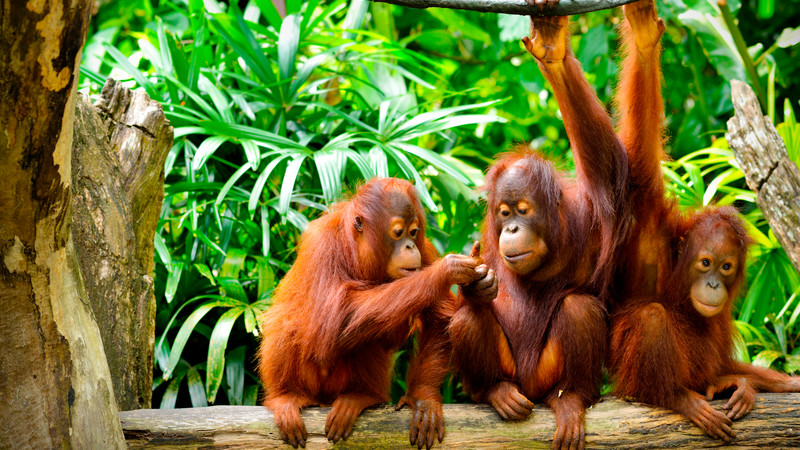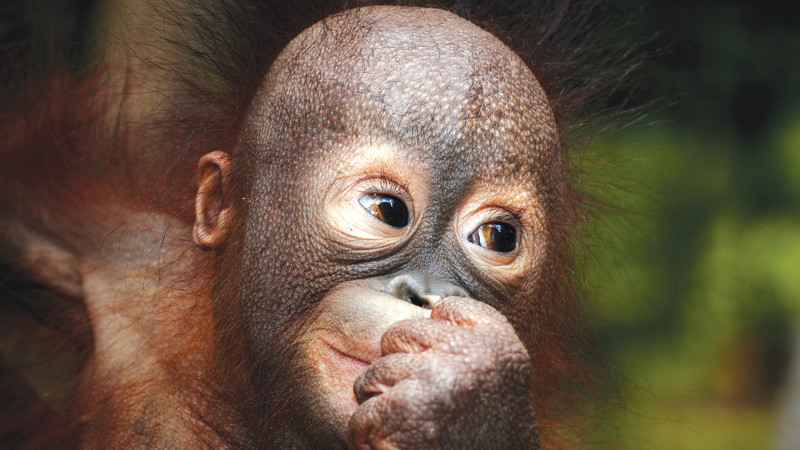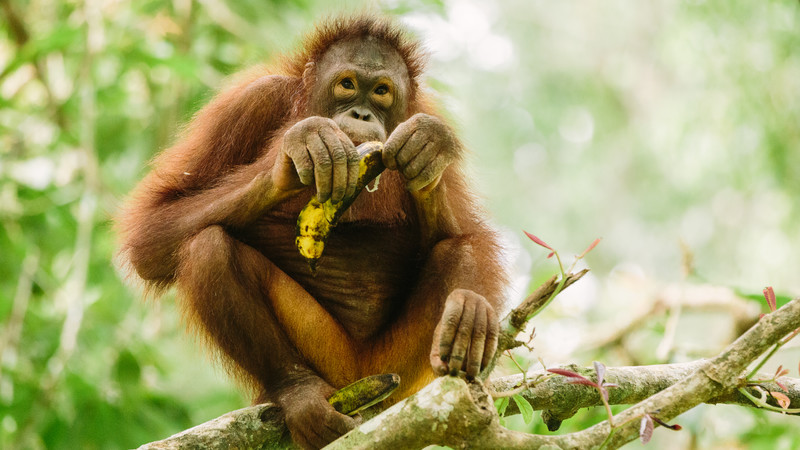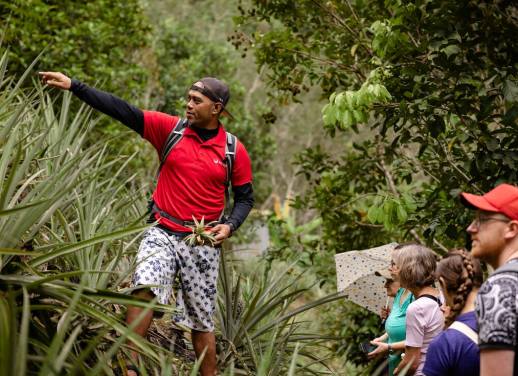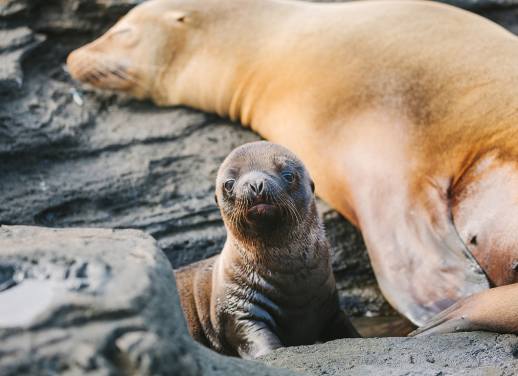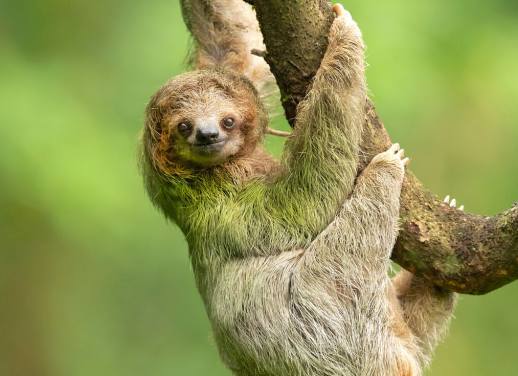Orangutans, with their shaggy orange fur, long limbs and cheeky grins, are the world’s largest tree-climbing mammals. They share 97% of the same genetics as humans (not surprising, given they’re known to the Malays as ‘men of the forest’); they are also avid gardeners, spreading seeds that are vital in maintaining the luscious ecosystem of the Borneo rainforest.
However, their habitats are being destroyed at an alarming rate. From the air, it appears as though alien life-forms have taken over the land, leaving the once-forested terrain stripped bare. Rivers are fading, drying up, and browning from the residue of deforestation and unsustainable logging activities.
Because of this, the orangutans are under threat of becoming extinct. It’s estimated that there are currently only 50,000 – 55,000 living in the wild, and they’ve recently been listed by the International Union for Conservation of Nature (IUCN) as critically endangered. A rainforest without these shaggy apes puts the forest ecosystem in danger; not only does it impact a myriad other animals and plants, the loss of orangutans is also representative of the loss of Borneo’s precious rainforest ecosystem, that sustains the lives – and livelihoods – of the Indigenous people of Indonesia and Malaysia.
The devastating activities in the Borneo rainforest also has a flow-on effect to the rest of society. Rainforests are integral in regulating the world’s temperatures; when trees are cut down, the carbon they’re storing is released into the atmosphere where it combines with greenhouse gases and contributes to global warming. If the clearing and burning of forests continues, Borneo will see an increased risk of floods and forest fires, impacts to human health, changes in agricultural yields and damage to infrastructure.
So what can we do to help?
Be a conscious consumer
We can all contribute to saving this precious ecosystem. When shopping for wood or paper products, look for the FSC (Forest Stewardship Council) label on packaging. The FSC is a non-profit organisation that certifies sustainable forest management; you can be confident that products with the FSC label have come from a responsibly managed forest. For beauty and food products, look for the RSPO (Roundtable on Sustainable Palm Oil) label; this ensures that no primary forests (or areas home to significant concentrations of wildlife or fragile ecosystems) can be cleared for the cultivation of palm oil crops. If your favourite brands don’t have this certification, you can get in touch with them and let them know they need to source and manage their products sustainably.
Every conscious consumer choice may be a decision to save the rainforests that beautiful wildlife calls home.
Donate or adopt
If you want to do more, you can support the inspiring work that the World Wildlife Fund (WWF) Australia is doing to help protect these critically endangered species. Give a donation or adopt an orangutan today. Your support will help their collaboration with local communities and governments to restore degraded peatlands, provide safe havens for orangutans and work with businesses on the sustainable production and trade of paper, timber and palm oil products.
We’ve partnered with WWF for World Orangutan Day on the 19th August, and to celebrate they’ll be giving one lucky winner the chance to travel to Borneo and discover the amazing tropical rainforest and stunning wildlife for themselves. For full details and to enter the competition go to the WWF website here.

